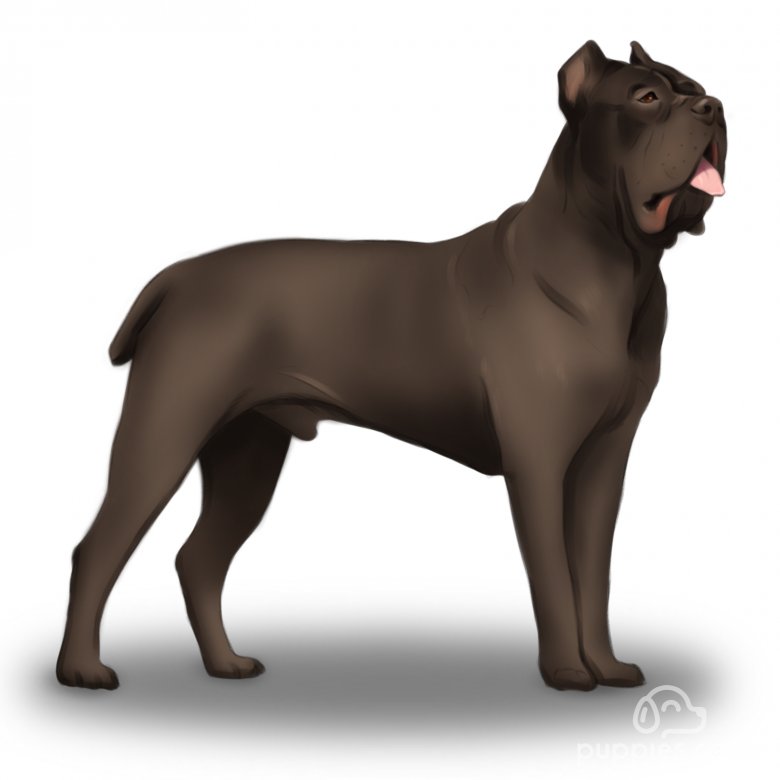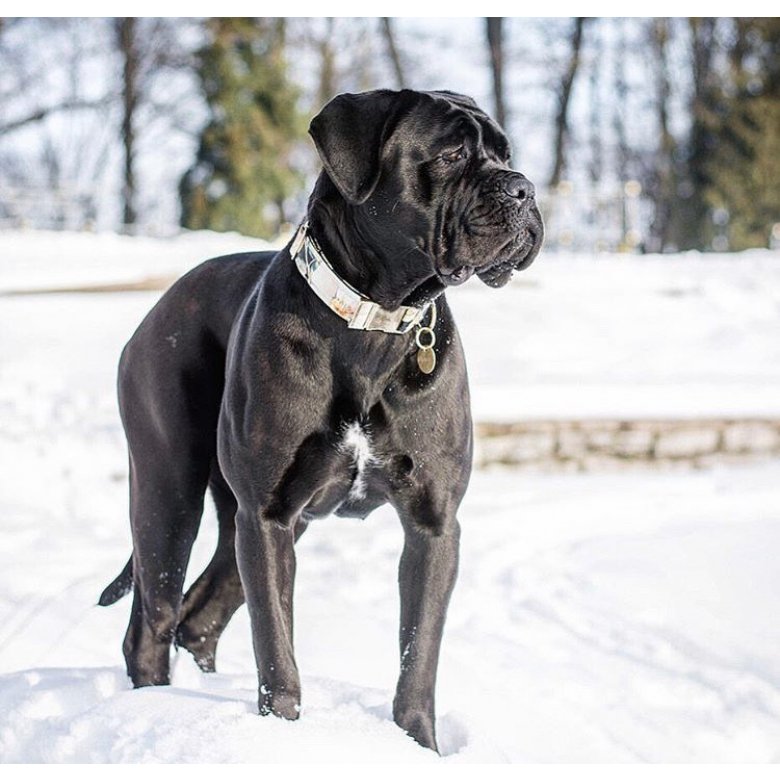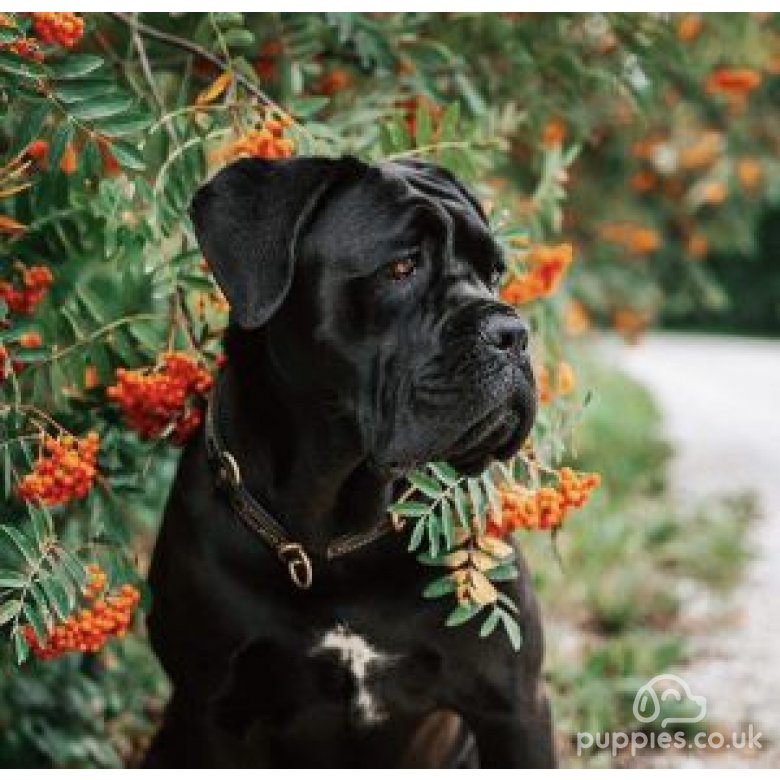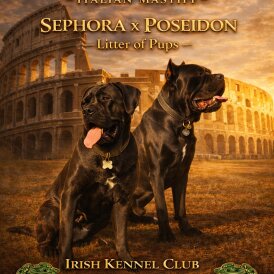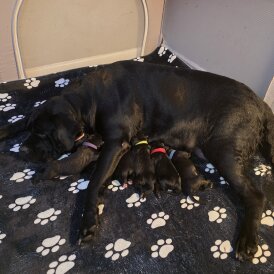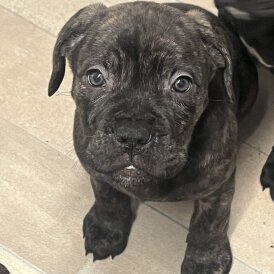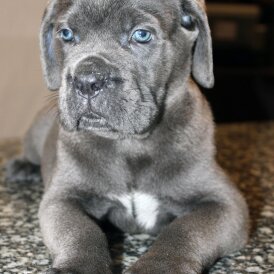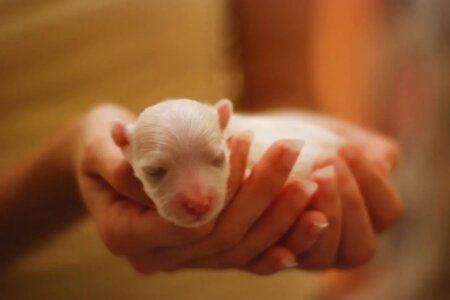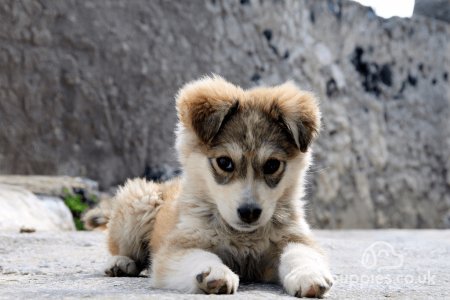Few guard dogs are as powerful yet elegant as the stylish Italian Cane Corso. This loyal companion mastiff breed is renowned for its superb watchdog ability paired with a gentle and obedient nature around owners and their families. For these reasons, Cane Corsos are an excellent choice of puppy for owners looking for a reliable guard dog for their home and family.
Why Cane Corsos are Great
Some highlights of Cane Corsos:
Watchdog: few breeds make as excellent a choice of watchdog as the Cane Corso.
Training: thanks to their high intelligence, Cane Corsos don’t normally require much training.
Grooming: this breed is not demanding in terms of grooming and maintenance.
Guard dog: as a natural guard dog, the Cane Corso will defend homes and families reliably.
Affectionate: especially as puppies, Cane Corsos are loving and affectionate with owners and their families, including children.
Things to Consider when Looking at Cane Corsos for Sale
Some downsides to the Cane Corso:
Health: unfortunately, this breed is susceptible to many common health issues.
Cost: due to their large size and susceptibility to health problems, ongoing costs for food and veterinarians can be quite high.
Drooling: this breed is known to drool profusely.
Loneliness: Cane Corsos don’t like being left alone for very long at all.
History of the Cane Corso
The Cane Corso of today proudly traces its lineage back to at least as far back as antiquity, where its earliest ancestor, the canis pugnaces (Latin for “fight-ready dog”) was used by Roman legions for its fearsome and powerful disposition. During the Roman invasion of Britain (perhaps both invasions), these mastiffs were imported and interbred with the fighting dogs used by the native British tribes. This new breed was subsequently brought back to Rome and was known to be widely used as a guard dog on properties all over the Italian peninsula. Its Italian name, cane corso, does not mean “racing dog” as one may assume from the corso, but rather “farmyard/bodyguard dog,” since the corso derives from the Latin cohors (bodyguard, farmyard). Over the following millennium, this breed became more widely used in the south of Italy, particularly in the province of Puglia (Apulia). Their numbers dwindled over the centuries, but have rebounded since their near-extinction levels in the 1970s. Today, this breed is quite popular outside of its native Italy but it is still not recognised by the Kennel Club of Great Britain.
Appearance
Standing tall and proud, the Cane Corso is a large and robust Molossian mastiff breed. Although muscular and lean, this breed exudes elegance as well. The Cane Corso is recognisable by his large, imposing head shape.
How big is the Cane Corso?
Cane Corsos are medium/large-sized dogs. Males grow on average to 62-70 cm in height, whilst females can grow up to 58-66 cm high.
How heavy is a Cane Corso?
Fully-grown adult male Cane Corsos weigh between 45-50 kg on average. Females weigh between 40-45 kg.
What colour is the Cane Corso?
The following colours are commonly recognised for the Cane Corso:
Black;
Lead-grey;
Slate-grey;
Light grey;
Light fawn;
Dark fawn;
Stag red;
Note that some dark wheat colouring is permissible as stripes on fawn or grey coats. Small white patches on the chest, toes, and bridge of the nose are acceptable.
Temperament
The Cane Corso is known to be a docile and protective breed. He will guard and protect homes, families, and livestock has he has done for thousands of years. Despite the large size of the Cane Corso, he is agile and capable of quickly responding to commands. For these reasons, the Cane Corso makes for a superb protector whilst also being a good choice around families living on larger properties where he can roam and exercise as necessary. Furthermore, Cane Corsos don’t require too much persistence to train. They’re naturally obedient and easy to train. Also, their high intelligence allows them to learn commands without much repetition.
Do Cane Corsos make good guard dogs?
Cane Corsos are amongst the best guard dogs that one can own. They are naturally excellent watchdogs and guard dogs, which means that owners can rest assured that their property and family are safe whenever a Cane Corso is on duty.
Do Cane Corsos bark a lot?
This breed isn’t known to bark excessively, but some barking is normal whenever he wants to alert owners or their families or whenever suspicious activity is taking place near the property.
Are Cane Corsos easy to train?
This breed is easy to train since he is quite intelligent and naturally obedient. Few repetitions will be required, although socialisation as puppies is important in order to teach them their role and to control their natural tendency to exert dominance.
Are Cane Corsos playful?
Cane Corso puppies, like many other puppy breeds, are known to be playful. As they grow older, they tend to become much more serious and always appear to be “on-duty.”
Are Cane Corsos good with children?
Cane Corsos get along well with children and are loving companions. They do tend to be large, however, so ensure that toddlers and young children are supervised at all times in order to prevent any accidents.
Are Cane Corsos good with other pets?
Generally, Cane Corsos get along well with other pets. They must be introduced and socialised to other dogs from a young age, however, since they tend to be dominant and will not back down. They don’t normally show a strong prey drive either, but smaller pets and cats may sometimes be chased around nevertheless.
Can I leave a Cane Corso alone?
Although Cane Corsos are natural watchdogs, they are fairly needy in terms of attention. They won’t be able to tolerate long bouts of isolation and therefore should not be left alone for anything more than a short period.
Do Cane Corsos like water?
Many Cane Corsos love water and will jump in any chance they get. As with all puppies, ensure that yours is gradually introduced to water and is allowed to dip their paws in so that they become accustomed rather than frightened of the water. Note that Cane Corsos may have difficulty breathing whilst swimming, so always supervise your puppy whenever he’s in the water.
Health
How long do Cane Corsos live?
Generally, Cane Corsos are expected to live anywhere from 10-11 years, but some evidence shows that they live to an average of 9.3 years.
How much exercise does a Cane Corso need?
Cane Corsos require plenty of exercise. Spend no less than 1.5 to 2 hours of quality time outdoors with your Cane Corso and ensure that he’s supervised whenever he’s around other dogs.
What are a Cane Corso’s common health issues?
Cane Corsos are prone to the following common health issues:
Hip dysplasia;
Elbow dysplasia;
Entropion;
Ectropion;
Wobbler’s Syndrome;
Demodectic mange.
As with many larger breeds, health conditions are more common and regular trips to the vet should be scheduled in order to identify and treat them before they get worse. In particular, demodectic mange is a concern for Cane Corso owners. This skin irritation can worsen over time and lead to lesions and hair loss. Urine tests by the vet can identify demodectic mange, so have these tests done frequently.
Care
How much space do I need for a Cane Corso?
This breed requires nothing less than a large home with a big yard or garden in order to remain happy and healthy. For this reason, Cane Corsos are best suited to rural environments where they can roam and keep guard over larger properties.
What should I feed my Cane Corso?
A fully-grown Cane Corso should be fed 4 to 5 cups of high-quality dog food every day. Adjust as necessary to promote good health and to prevent overfeeding.
How much grooming do Cane Corsos need?
Fortunately, Cane Corsos don’t require too much grooming or maintenance. Weekly brushing is all that’s required to keep their short coats healthy.
Do Cane Corsos shed?
This breed is known to shed a fair amount. Routine cleaning and vacuuming with a HEPA filter can help keep this under control.
Average Costs
How much does it cost to keep a Cane Corso?
As a rough guide in pricing: Cost to buy: roughly £600-1,200 for a well-bred Cane Corso puppy Other costs (Vet, Food etc): £90-150 per month
Specific Buying Guide
You can read our general buying guide here, with the most important thing being going to view your Cane Corso puppy, seeing it with its mother, and checking the quality of the breeder. More specifically, here is some Cane Corso puppy buying advice:
Cane Corsos are not yet recognised by the Kennel Club of Great Britain. This means that prospective buyers should consult other kennel clubs if they’d like to learn more about their prospective puppy. It also means that they may be more difficult to acquire in the UK, thus leading to potentially higher costs.
This breed is especially prone to a few health issues that prospective owners should be aware of. Ensure that your puppy is healthy not only when considering purchasing him, but maintain his health by taking him to the vet frequently.
Other Reading, Adopting Cane Corso Puppies and Rescue Organisations
A big thank you to the following sources who helped to shape this article: Cane Corso Appreciation Club UK: https://www.canecorsoappreciationsociety.co.uk/ Barber Cane Corso UK: https://www.bluecanecorso.co.uk/ Federation Cynologique Internationale: https://www.fci.be/Nomenclature/Standards/343g02-en.pdf Kennel Club of Great Britain: https://www.thekennelclub.org.uk/services/public/breed/display.aspx?id=1001 UK Dog Trust: https://www.dogstrust.org.uk/ Blue Cross: https://www.bluecross.org.uk/rehome-pet









